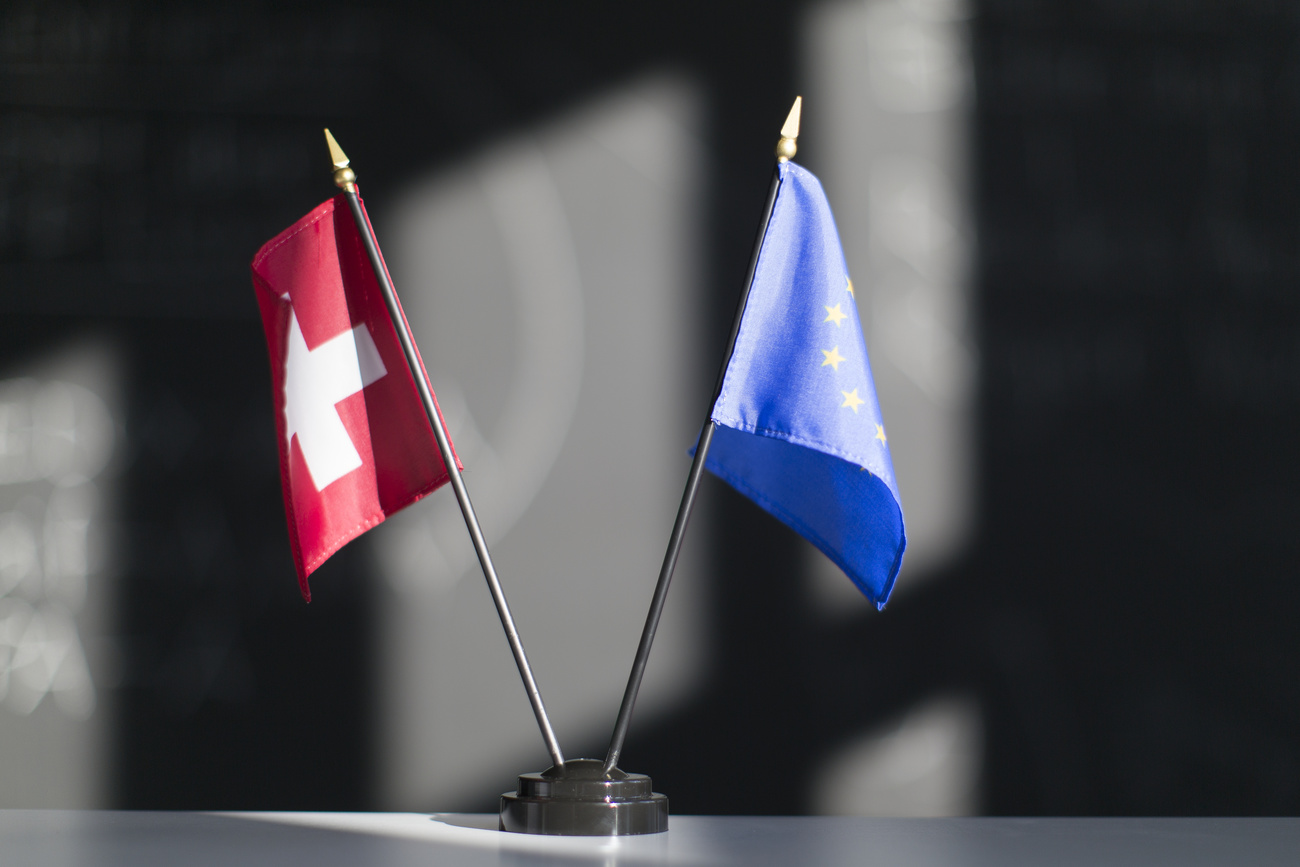
Planned initiative would push government on Europe

An alliance of political and civil society organisations has unveiled plans for a possible popular initiative that would force Bern to act on its deadlocked relations with the European Union.
Presenting the text on Tuesday, Alliance Europe said that the federal government was doing nothing to break the deadlock with the EU after it abandoned talks on an institutional framework agreement in May 2021.
Major sticking points are salary protection, state aid rules, and the access of EU citizens to Swiss social security benefits. The Alliance Europe text specifically mentions salary protection, which is a demand of the unions and left-wing parties.
Its proposed initiative would force “the big vote on Europe that the federal government wants to avoid”, said a committee for the alliance. If the initiative passed, Bern would be obliged to enter into negotiations with Brussels in order to clarify the institutional issues.
Pressure on parliament
However, Alliance Europe does not plan to launch its initiative immediately, but first to put pressure on parliament. The Senate foreign policy committee is to debate on Monday a parliamentary initiative from the House of Representatives calling for the facilitation of bilateral relations and the continuation of European integration.
“We are convinced that the Council of States [Senate] will move forward on the issue,” said Sibel Arslan of the Green Party. But if all solutions fail in the chambers, or if the planned law is not binding enough, the “Europe” initiative will be launched.
Alliance Europe includes the Greens and a number of groups such as the Swiss Students’ Union, the cultural umbrella organisation Suisseculture and the association “Switzerland in Europe”. It said all parties and major organisations had been approached to draft this text, which would be acceptable at least to the Social Democratic and Radical Green parties.

In compliance with the JTI standards
More: SWI swissinfo.ch certified by the Journalism Trust Initiative






























You can find an overview of ongoing debates with our journalists here . Please join us!
If you want to start a conversation about a topic raised in this article or want to report factual errors, email us at english@swissinfo.ch.